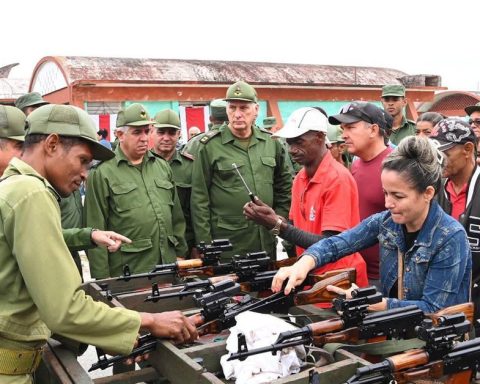The President of the Republic, Gabriel Boric, held a bilateral meeting with his counterpart from the United States, Joe Biden, on Thursday night. Instance that lasted about 40 minutes.
One of the topics that prevailed in the conversation was about the current situation in Latin America, the increase in the cost of living and how the various sanctions that Russia has received have impacted inflation.
Chilean Foreign Minister Antonia Urrejola confirmed that both heads of state agreed to create a working group between the two countries, with the aim of finding solutions to problems such as the rise in the price of life.
“Form a working group between the US and Chile to see how we can deal with issues such as the increase in life,” said Urrejola,
Along the same lines, the Minister of Foreign Affairs announced that said proposal was well received by Chile and the Chilean ambassador in Washington, Juan Gabriel Valdés, was appointed to lead said installation of the working group.
On the other hand, there were topics of conversation that were set for the agenda but were not discussed, such as the case of the possession of weapons, climate change and the “annoyance” for the exclusion of Venezuela, Nicaragua and Cuba from the IX Summit of the Americas.
Through Twitter, President Boric indicated that he spoke with Biden about the global rise in the cost of living and the search for a global pact “against tax havens.”
“With Joe Biden we discussed continental strategies to face the rise in the cost of living for our peoples. In addition, we will work for a global tax pact against tax havens”, he stated.
With Joe Biden @POTUS We discussed continental strategies to face the rise in the cost of living for our peoples. In addition, we will work for a global tax pact against tax havens. From the South we are committed to sustainable and equitable development. pic.twitter.com/QyA4heBXnW
— Gabriel Boric Font (@gabrielboric) June 10, 2022
In another publication, the President stated that the United States must understand its relationship with the countries of Latin America, it must be one of peers and not subordinates.
In a second publication, the president indicated that the US must understand that its relationship with Latin American countries must be one of peers and not subordinates.
“To the extent that the US understands that Latin American countries are its peers and never subordinate, we will be able to work together. It is a necessary condition for a new continental deal that promotes democracy, human rights and the fight against climate change in the world”, she concluded.

















